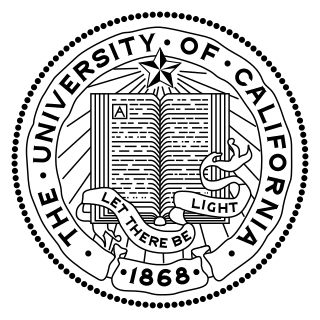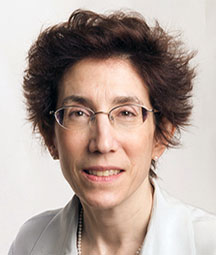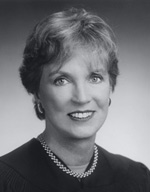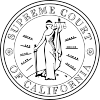
The University of California (UC) is a public land-grant research university system in the U.S. state of California. Headquartered in Oakland, the system is composed of its ten campuses at Berkeley, Davis, Irvine, Los Angeles, Merced, Riverside, San Diego, San Francisco, Santa Barbara, and Santa Cruz, along with numerous research centers and academic abroad centers. The system is the state's land-grant university. Major publications generally rank most UC campuses as being among the best universities in the world. In 1900, UC was one of the founders of the Association of American Universities and since the 1970s seven of its campuses, in addition to Berkeley, have been admitted to the association. Berkeley, Davis, Santa Cruz, Irvine, Los Angeles, Santa Barbara, and San Diego are considered Public Ivies, making California the state with the most universities in the nation to hold the title. UC campuses have large numbers of distinguished faculty in almost every academic discipline, with UC faculty and researchers having won 71 Nobel Prizes as of 2021.
Cohen v. California, 403 U.S. 15 (1971), was a landmark decision of the US Supreme Court holding that the First Amendment prevented the conviction of Paul Robert Cohen for the crime of disturbing the peace by wearing a jacket displaying "Fuck the Draft" in the public corridors of a California courthouse.

The University of California College of the Law, San Francisco is a public law school in San Francisco, California, United States. The law school was formerly known as the University of California, Hastings College of the Law from 1878 to 2023.

The Supreme Court of California is the highest and final court of appeals in the courts of the U.S. state of California. It is headquartered in San Francisco at the Earl Warren Building, but it regularly holds sessions in Los Angeles and Sacramento. Its decisions are binding on all other California state courts. Since 1850, the court has issued many influential decisions in a variety of areas including torts, property, civil and constitutional rights, and criminal law.

Proposition 209 is a California ballot proposition which, upon approval in November 1996, amended the state constitution to prohibit state governmental institutions from considering race, sex, or ethnicity, specifically in the areas of public employment, public contracting, and public education. Modeled on the Civil Rights Act of 1964, the California Civil Rights Initiative was authored by two California academics, Glynn Custred and Tom Wood. It was the first electoral test of affirmative action policies in North America. It passed with 55% in favor to 45% opposed.
Tarasoff v. Regents of the University of California, 17 Cal. 3d 425, 551 P.2d 334, 131 Cal. Rptr. 14, was a case in which the Supreme Court of California held that mental health professionals have a duty to protect individuals who are being threatened with bodily harm by a patient. The original 1974 decision mandated warning the threatened individual, but a 1976 rehearing of the case by the California Supreme Court called for a "duty to protect" the intended victim. The professional may discharge the duty in several ways, including notifying police, warning the intended victim, and/or taking other reasonable steps to protect the threatened individual.
Moore v. Regents of the University of California was a landmark Supreme Court of California decision. Filed on July 9, 1990, it dealt with the issue of property rights to one's own cells taken in samples by doctors or researchers.

Sandra Segal Ikuta is a United States circuit judge of the United States Court of Appeals for the Ninth Circuit.
The history of the University of California, Los Angeles traces back to the 19th century when the institution operated as a teachers' college. It grew in size and scope for nearly four decades on two Los Angeles campuses before California governor William D. Stephens signed a bill into law in 1919 to establish the Southern Branch of the University of California. As the university broke ground for its new Westwood campus in 1927 and dissatisfaction grew for the "Southern Branch" name, the UC Regents formally adopted the "University of California at Los Angeles" name and "U.C.L.A." abbreviation that year. The "at" was removed in 1958 and "UCLA" without periods became the preferred stylization under Chancellor Franklin D. Murphy in the 1960s. In the first century after its founding, UCLA established itself as a leading research university with global impact across arts and culture, education, health care, technology and more.
Board of Regents of the University of Wisconsin System v. Southworth, 529 U.S. 217 (2000), is a ruling by the Supreme Court of the United States which held that public universities may subsidize campus groups by means of a mandatory student activity fee without violating the students' First Amendment rights.

Kathryn Jocelyn Mickle Werdegar is a former Associate Justice of the Supreme Court of California, serving from June 3, 1994, to August 31, 2017.

Janice Rogers Brown is an American jurist. She served as a United States circuit judge of the United States Court of Appeals for the District of Columbia Circuit from 2005 to 2017 and before that, Associate Justice of the California Supreme Court from 1996 to 2005. She is a member of the Federalist Society and frequently features at events hosted by the organization.

Samuel James Otero is a former United States district judge of the United States District Court for the Central District of California.

Marshall Francis McComb was an American jurist who served as an associate justice of the Supreme Court of California from January 1956 to May 2, 1977.
Smith v. California, 361 U.S. 147 (1959), was a U.S. Supreme Court case upholding the freedom of the press. The decision deemed unconstitutional a city ordinance that made one in possession of obscene books criminally liable because it did not require proof that one had knowledge of the book's content, and thus violated the freedom of the press guaranteed in the First Amendment. Smith v. California continued the Supreme Court precedent of ruling that questions of freedom of expression were protected by the Due Process Clause of the Fourteenth Amendment from invasion by state action. It also established that in order for one to be criminally liable for possession of obscene material, there must be proof of one's knowledge of the material. It described that by requiring booksellers to know the contents of all of the books that they sell, this would lead to the government compelling booksellers to self-censor thereby restricting the public's access to books which the State could not constitutionally suppress directly.
The Judiciary of California or the Judicial Branch of California is defined under the California Constitution as holding the judicial power of the state of California which is vested in the Supreme Court, the Courts of Appeal and the Superior Courts. The judiciary has a hierarchical structure with the California Supreme Court at the top, California Courts of Appeal as the primary appellate courts, and the California Superior Courts as the primary trial courts.
Mexicali Rose v. Superior Court, 1 Cal. 4th 617 (1992), was a Supreme Court of California case in which the court’s decision held that restaurants, grocery stores, and other food service establishments in California can be held liable for injuries sustained by patrons from foreign objects—including natural food parts—that are left in food.
Richard Henry Sander is a professor of law at the UCLA School of Law and a critic of affirmative action, primarily known for the mismatch theory.

Department of Homeland Security v. Regents of the University of California, 591 U.S. ___ (2020), was a United States Supreme Court case in which the Court held by a 5–4 vote that a 2017 U.S. Department of Homeland Security (DHS) order to rescind the Deferred Action for Childhood Arrivals (DACA) immigration program was "arbitrary and capricious" under the Administrative Procedure Act (APA) and reversed the order.

Janet Conney v. The Regents of the University of California, et al. was a case in which the Los Angeles County Superior Court, Second Appellate District, Division Seven awarded a $4.06 million judgment in March 2007, after the appeals court upheld the lower court ruling. A large portion of the award went to the 4 attorneys, while Conney received approximately $2.95 million of the judgment against the University of California in a sex discrimination and retaliation case.










